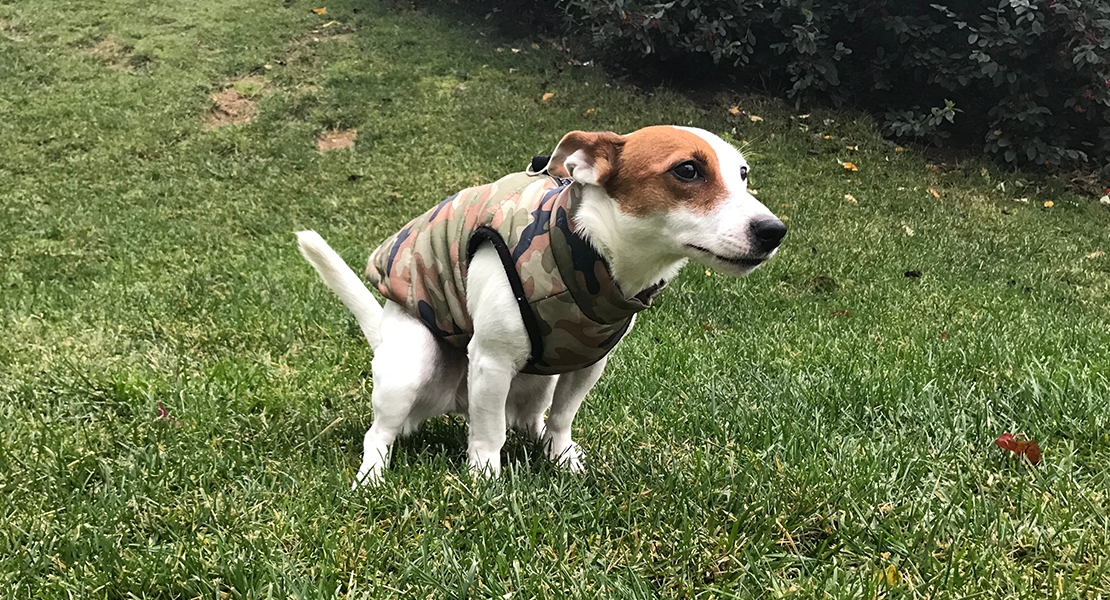While clogging in canines is remarkable and is typically a brief issue, it can likewise cause uneasiness and show a more difficult issue. This is the thing you want to be familiar with changes to your canine’s defecations and what they could mean.
Is your canine clogged up?
Obstruction in canines is extraordinary — truth be told, it is seldom the reason for a disturbance in a canine’s disposal schedule. On the off chance that you notice your canine hunching down or stressing to ease themselves, this conduct could have various causes:
Loose bowels: Your pet might have a runny stool, which can be simple for proprietors to miss on the off chance that they look somewhere else while their canine eases themselves. Canines with looseness of the bowels now and again squat and endeavor to dispose of in light of the fact that they believe they need to, driving their proprietors to expect their canine is clogged up.
Gastrointestinal (GI) annoyed or bothered colon or rectum: Dogs with GI upset or disturbance of the colon or rear-end might crouch strain to ease their uneasiness. This doesn’t be guaranteed to mean they are attempting to kill.
Urinary lot disease (UTI): Female canines with UTIs might hunch down more frequently than expected, thinking they need to pee.
Blockage: Although interesting, canines can experience the ill effects of stoppage.
In the event that you’re uncertain why your canine’s way of behaving has changed, counsel your vet.
What Causes Dog Constipation?
Most canines crap one to two times each day, so on the off chance that you notice that your canine hasn’t gone for a little while, they might be clogged up.
Typically, waste material travels through a canine’s gastrointestinal system by means of the compression and unwinding of muscles, known as peristalsis. Assuming this cycle dials back, the feces sit in the colon and turn out to be hard, dry, and unfit to pass.
Numerous things can make a log jam that leads to clogging, including:
Butt-centric organ issues
Parchedness or electrolyte irregular characteristics
Sicknesses of the colon
Amplified prostate
Exorbitant self-prepping, particularly in canines with long hair
Gastrointestinal worms
Absence of fiber in the eating regimen
Absence of activity
Neurological issues
Muscular tissues, most frequently connected with the back end or rear legs
Results of specific meds
Something trapped in the digestive system, like bones or shakes
Growths in the gastrointestinal system, pelvis, or butt
Indications of Dog Constipation
By focusing on the recurrence of your canine’s solid discharges, it will be simpler to see assuming they are obstructed.
Signs that your canine is blocked up include:
Not pooing for over two days straight
Stressing to poo
Clear agony or inconvenience (crying, whimpering, or hunkering) while at the same time attempting to crap
Hard, dry stools that seem to be stones
Blood or bodily fluid in the stool
Instructions to Help a Dog with Constipation
On the off chance that your little guy has just been obstructed for a little while, attempting a few at-home cures can assist a canine with taking out more rapidly. These include:
Adding a limited quantity of unsweetened canned pumpkin to their food
Guaranteeing they approach a lot of new water
Adding wet food or unsalted stock to their feasts
Expanding their day-to-day workout
When to Contact Your Veterinarian
Any time you have a worry about your canine, contact your veterinarian, particularly in the event that the stoppage endures over two days or on the other hand assuming your canine is drowsy, retching, or has no craving. Persistent obstruction can prompt obstipation, an extreme ailment in which the colon can’t void all alone. Try to give your vet however much data as could reasonably be expected. This could include:
The time, variety, and consistency of your canine’s last typical solid discharge
Changes in diet or schedule
Prescriptions or enhancements your canine is taking
Any wounds or different indications of uneasiness
Your vet might suggest a prescription or stool conditioner, recommend a particular eating routine, or direct a purification. Critically, you shouldn’t give a clogged-up canine over-the-counter intestinal medicines, as this could really hurt them.
Obstruction can be entirely awkward for canines, however, there are ways of keeping away from it. While ensuring your canine gets sufficient fiber, new water and exercise can help with forestalling clogging, you can likewise give them probiotics to assist with supporting legitimate absorption and entrail wellbeing.

